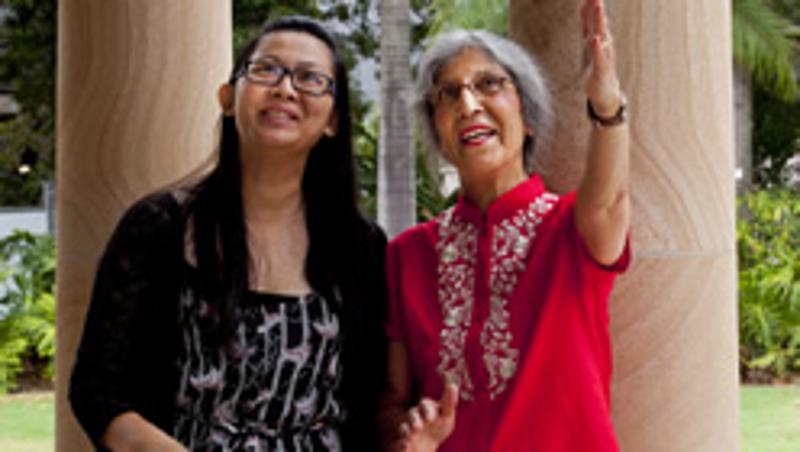
A Queensland University of Technology international researcher is calling for Australian universities to model themselves on their European counterparts and become more connected to universities within the Asia-Pacific region.
QUT Director of International Graduate Research, Professor Acram Taji, said universities needed to better equip students to be able to work as part of a global workforce.
"In Europe students are able to undertake their undergraduate and postgraduate studies at universities across a wide range of countries and this gives them a greater global perspective," she said.
"Australian universities can create the same type of opportunities for students here among the ASEAN University Network which currently includes 27 universities from the 10 member nations."
Professor Taji said there were two key challenges to introducing a more global tertiary education system for Australian students but these challenges are not insurmountable.
"The curriculum at universities across not only Australia but the Asia Pacific needs to be harmonised so that a unit of study at one university, say an engineering unit in Indonesia, has a comparable unit here in Australia," she said.
"This would be a big job and it has taken ten years to harmonise the education syllabus across universities in Europe through European Credit Transfer and Accumulation System, but it can and should be done because it will result in enormous opportunities for students and for Australia.
"The second challenge to the internationalisation of Australian universities is language.
"While English is the most common academic language world-wide, it is imperative that Australian students learn an Asian language to enable them to study more widely at universities in their region."
Professor Taji said producing internationalised students who could work and live effectively across international borders was one of the most important functions of universities in the 21st century.
"The challenges that face the world now and in the future, require a global response," she said.
"Studying overseas gives graduates a global perspective. It encourages international partnerships and research collaborations and an inclusive approach to solving problems that are regional if not global in nature."
She said by studying overseas Australian students would gain valuable insights into the cultures of other countries and specifically our Asian neighbours and vice-versa.
The ASEAN nations of Brunei Darussalam, Cambodia, Indonesia, Laos, Malaysia, Myanmar, Philippines, Singapore, Thailand and Vietnam are a growing powerhouse that supports nine per cent of the world's population and has total GDP of more than US$1.3 trillion.
Professor Taji said QUT was committed to the values of internationalisation and has active joint PhD program with a number of high quality universities across the globe as well as student exchange programs with 35 countries in Asia, Europe and North and South America. The aim is that by 2016 10 per cent of its student population would have involvement with an international study program.
She said however an internationalised university campus, which QUT was well on the way of being, was one that gave a second voice (a second language) to those who passed through its gates.
"A truly internationalised campus in reality is a bilingual campus," Professor Taji said.
"This is certainly the case for our students who come from culturally and linguistically diverse backgrounds or our international students who arrive on our campuses with their own language and way of life.
"By the time they finish their degrees they have gained high level of fluency in English but this is not so for our Australian students. It is my dream to help our Australian students to have this transformative experience.
"From a national perspective, the most compelling rationale for internationalisation is investment in future global relationships with students educated in Australia who will become our advocates overseas, with educational institutions that will be the research and teaching partners of the future, and with the countries that will be Australia's next trading and business partners."
At its core the drivers of internationalisation in universities are the academic staff who are the agents of change. They can create, influence and implement an internationalised curriculum to help train graduates for work in the global economy.
Professor Taji who recently gave a plenary address at an internationalisation workshop in Chiang Mai Rajabhat University in Thailand and is an award-winning lecturer and researcher and is recognised as a Distinguished Visiting/Guest/Honorary Professor in six universities in China, Fiji, Indonesia, Japan and Thailand.
She will be delivering a keynote lecture on the topic of internationalisation at an international conference in Sri Lanka next month.
Media contact: Rose Trapnell, QUT media team leader, 07 3138 2361 or 0407 585 901 rose.trapnell@qut.edu.au


